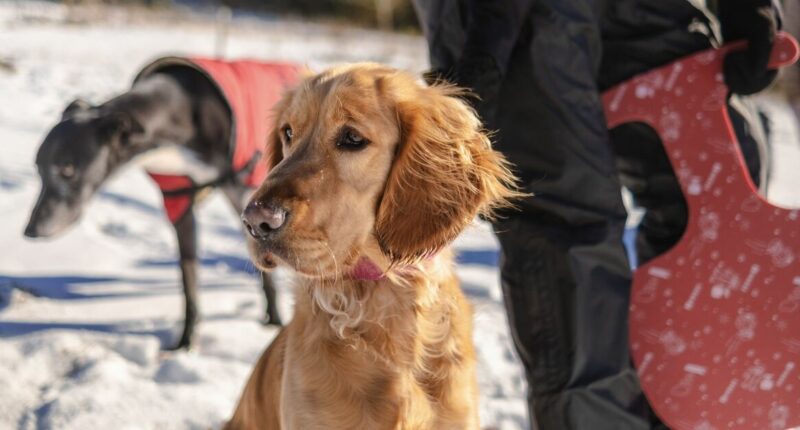Share this @internewscast.com
As temperatures drop across the nation this winter, a veterinarian has issued a crucial alert about seven symptoms in pets that could signal significant health concerns. While we all feel the chill, our beloved pets might also grapple with the harsh winter conditions.
Veterinary experts at Medivet, a prominent veterinary care provider, are advising pet owners to stay vigilant as winter progresses. The cold season can bring a host of health challenges for pets, ranging from minor ailments and frostbitten paws to severe conditions like hypothermia. Vets emphasize that the early signs of these issues are often subtle and easily overlooked.
In the UK, millions of households consider their cats, dogs, and other animals as cherished family members.
Though dedicated pet owners consistently prioritize their animals’ well-being throughout the year, winter introduces unique challenges and risks.
In search of guidance, many people turn to social media, where both amateur enthusiasts and seasoned experts willingly offer their insights and experiences.
During these colder months, pet owners should be particularly attentive to certain warning signs that may indicate more serious health problems in their furry companions.
They are:
- Shivering
- Excessive sneezing
- Runny nose
- Constant watery eyes
- Dry or flaky skin
- Drowsiness
- Whimpering/whining
Symptoms of hypothermia in pets
Hypothermia in pets is a serious concern and can, in some cases, even lead to their death so it’s important to be aware of any symptoms.
It comes about when an animal’s body temperature drops to a dangerously low level which can then bring on health issues which could lead to organs shutting down.
Even mild cases can lead to problems. If you believe your pet may have hypothermia, seek medical attention from a vet immediately.
Specific symptoms of hypothermia in pets also include:
- Shivering (although this may suddenly stop in pets when their temperature reaches dangerously low levels)
- Pale lips and gums
- Low energy
- A loss of coordination
Dr Rhian Littlehales, clinical governance director at Medivet, has shared guidance to help owners keep their pets safe throughout the harsh winter months.
The vet began with exercise and said: “While it’s important that your pet still gets time outside for exercise and toilet breaks, ensure they are only outside for short, but frequent bursts to minimise exposure to the cold.
“Prolonged cold exposure can cause your pet’s paws to crack, or even become frostbitten, and so it’s vital to keep walks and outside time brief and keep your pets moving and active at all times.”
The vet also advised checking your dog or cat’s paws for “signs of injury” after they’ve been walking outside and urged owners to “be vigilant about whether they appear to be in discomfort”.
Frozen surfaces are a hazard to animals but, equally, de-icer products like road grit and antifreeze can cause issues like chemical burns and dry, cracking paws.
The vet recommends washing paws with warm water after pets return from outside “to ensure no residue is left”.
They added: “These chemicals can also be harmful to your pet if ingested, especially cats as even a small amount can cause kidney failure and even death, so be careful to prevent them from getting any on their coat or licking it off their paws.
“If your pet does get these substances on them, clean it away thoroughly with warm water before drying.”
Dr Littlehales also recommends owners consider getting a coat for their pets, keeping them up to date with vaccinations, and to be especially careful in icy conditions which can make it tricky for them to “keep traction on the ground”.
This could result in breaks or sprains.

















